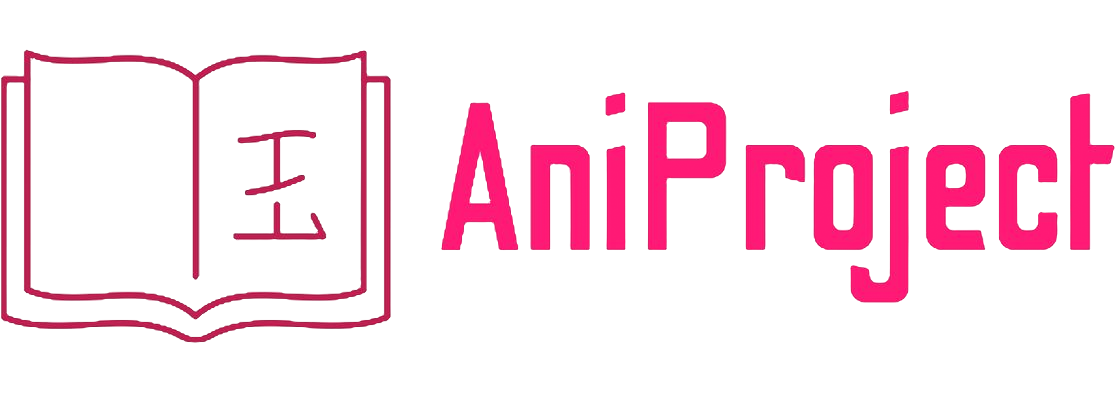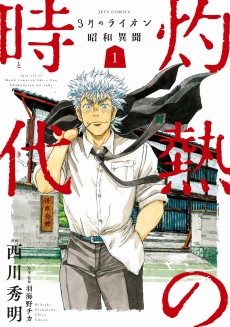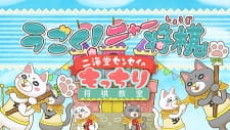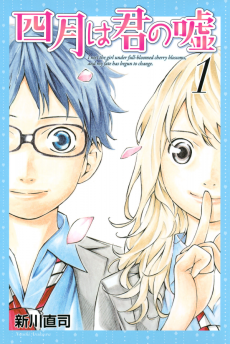3-GATSU NO LION
STATUS
RELEASING
VOLUMES
Not Available
RELEASE
Invalid Date
CHAPTERS
Not Available
DESCRIPTION
Rei Kiriyama is a child prodigy. Rei Kiriyama is also an orphan who lives alone in an empty apartment. Rei Kiriyama is a teen working in an adult's world. Life is complicated for Rei. He's an up-and-coming shogi player on the verge of turning pro, but he has no homelife, or much of a life period,outside his board game, but thankfully with the help of some life-long friends he has an opportunity start all over again.
(Source: DENPA)
Notes:
- Winner of the Grand Prize at the 4th Manga Taishou Award in 2011.
- Winner of the 35th Kodansha Manga Award in 2011.
- Winner of the Grand Prize at the Tezuka Osamu Cultural Prize in 2014.
- Winner of the Grand Prize at the Japan Media Arts Festival in 2021.
CAST
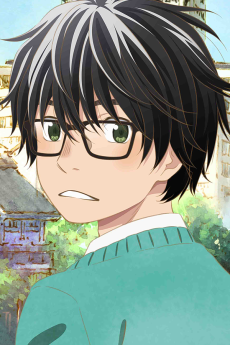
Rei Kiriyama
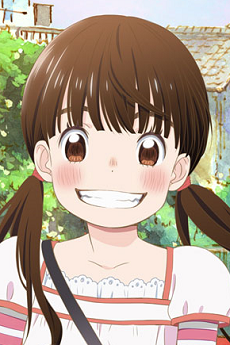
Hinata Kawamoto
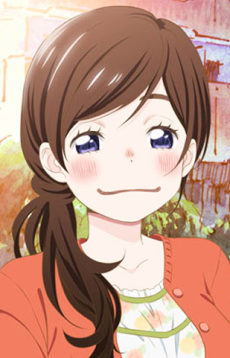
Akari Kawamoto
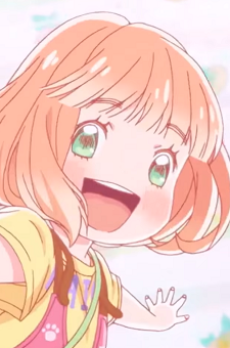
Momo Kawamoto
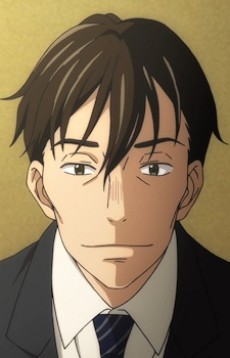
Kai Shimada
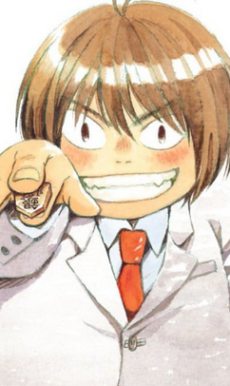
Harunobu Nikaidou
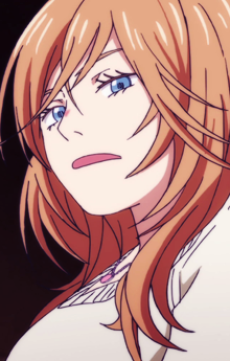
Kyouko Kouda
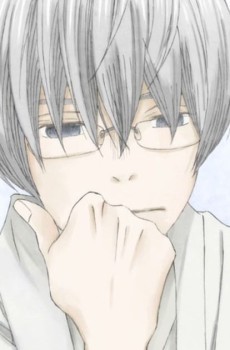
Touji Souya
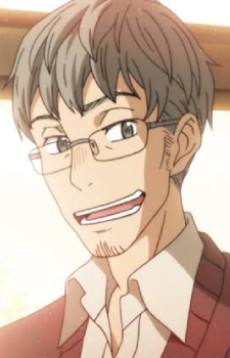
Takashi Hayashida
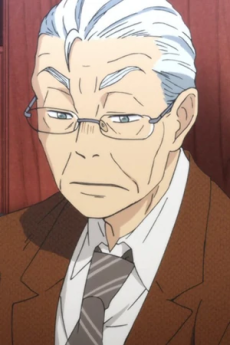
Sakutarou Yanagihara
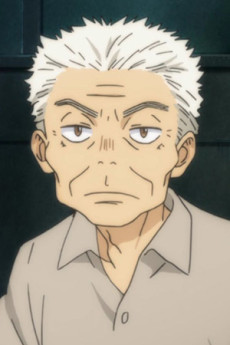
Someji Kawamoto
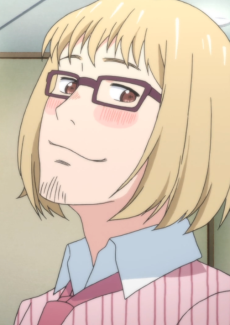
Tatsuyuki Misumi

Noguchi Eisaku
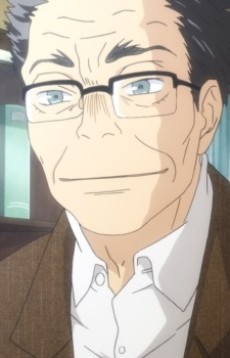
Kokubu-sensei
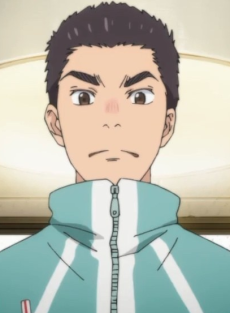
Yuusuke Takahashi
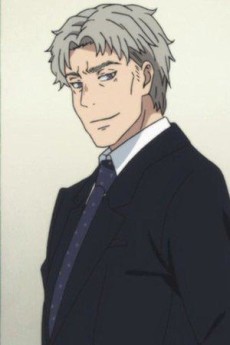
Masamune Gotou
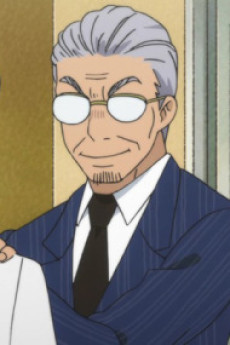
Takanori Jinguuji
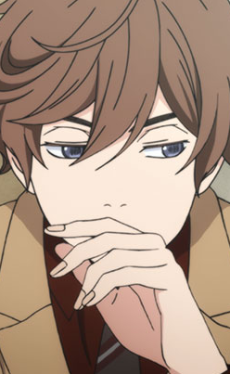
Takeshi Tsujii
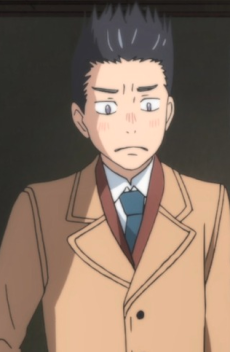
Issa Matsumoto
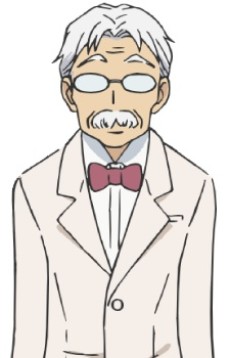
Hanaoka
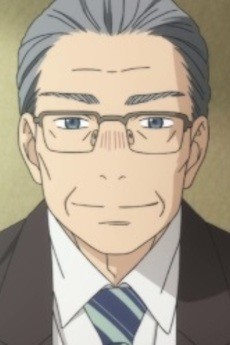
Masachika Kouda
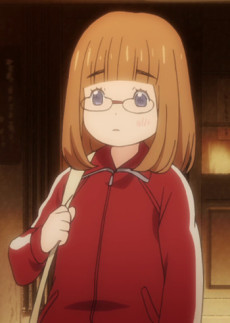
Chiho Sakura
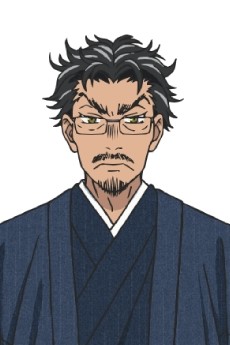
Raidou Fujimoto
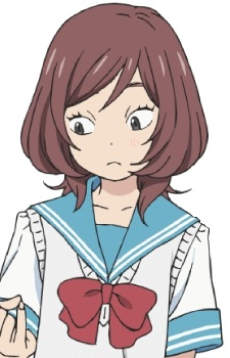
Megumi Takagi
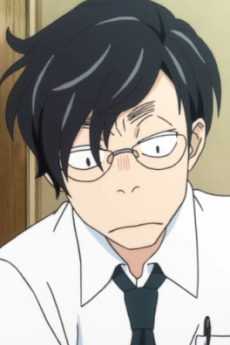
Okuyasu Yokomizo
CHAPTERS
RELATED TO 3-GATSU NO LION
REVIEWS

GGShang
95/100People who seem the furthest away are surprisingly more similar to us that we may think.Continue on AniListMarch Comes In Like a Lion is a beautiful story following the life of pro-shogi player, loner high school student Rei. But as much as the story is about Rei and his shortcomings, victories, history and progression it is about so much more as well: the wills and desires of other shogi players, the bubbling life if a family of sisters, the aftermath of a shattered family. If there were one word to describe the story it would be "alive".
In general, March Comes In Like a Lion is a character drama/slice of life story that takes it's time in developing five big area's of Rei's life: his shogi career, his relationship with the Kawamoto sisters, his relationship with his family, his school life, and his own personal struggles. Through each of these we are able to see Rei's history and growth as a character, showing multiple facets and sides of his personality. Not only that, but for every character introduced we are given glimpses of their motivations or past that helps us see them as fully fleshed out characters as well. I think that that is probably the best part of reading March Comes In Like a Lion. No character is introduced to only be a one dimensional side character. Each new shogi rival is not just someone to be conquered and defeated, but rather their own character with their own motivations and wills that they want to push forward. The Kawamoto family, though they seem like a happy-go-lucky family from the outset are dealing with their own terrifying problems that we only get to know in bits and pieces as the story progresses. We may find Rei's family to be rash and unreasonable until they show us why they've been acting this way the entire time. No one is there for no reason, and everyone has their own strong, personal and realistic reasons for doing the things they do.
Thematically, March Comes In Like a Lion has a whole lot to say, with the biggest themes being family, personal desires and relationships. The first theme is explored through a comparison between Rei's adopted family and the Kawamoto family. Through those families we can see what it means to be welcomed and loved, even if you aren't really a member of the household and being accepted for who you are and not what you do by looking at the two extremes. Every shogi match displays the weight of wills clashing against each other, with both players holding their expectations and dreams on the line, with only the one who wants it most winning in the end. And through everything we see Rei slowly develop his relationships with those around him, in his professional, social, familial and romantic lives. Every theme is explored through the inner thoughts of the players and the beautifully drawn metaphors in each panel.
Honestly there is so much more I could say about this manga, but the best way to understand is to take a read. It's not a high stakes story about saving the world or finding true life, but rather a simple story about a talented, but ordinary boy learning what it means to live life, to take hold of the good around him and to enjoy what he's been given. All of it just feels so natural and so human, so relatable yet still interesting to read. Everything it does and all that it culminates to surely makes March Comes In Like a Lion one of the best character driven stories out there.

sushiisawesome
100/100A classic, virtually flawless in its approach to sensitive themes with memorable, lovable yet flawed characters.Continue on AniListMarch comes in like a lion is a story about life at its highs, lows and in-betweens, yet portrays the struggle to attain happiness and a place to belong as difficult due to personal struggles the characters undergo. It's a series about living life to the fullest however you can, growing out of one's shell in order to trust others and move beyond pain. It's a personal journey for one young man to overcome depression, another story about a woman whose life has been defined by raising her sisters and yet shoulders on, a clinically sick man who barely struggles to finish his games despite his energy and passion for the game and one of an old man who has seen people retire and die yet shoulders on as a symbol of tenacity despite his old age. It's a story of these wounded people who despite struggling in a hyper-individualistic society, strive for connection and purpose, with the narrative glorifying this struggle painful as it be for a happier tomorrow. To gain happiness, one must first undergo pain, and it is this that drives the characters' struggles for attaining happiness.
Rei is at the heart of all these themes, being a reluctant professional shogi player who only plays shogi because it's what grants him recognition to his adopted father, yet said father's actions have ironically made him a somewhat dysfunctional and self-destructive person who often keeps problems to himself instead of entrusting others. His parents and sister were lost in an accident, providing a frightening explanation for a child that only craved a new family to belong to due to compensate for his loss; this also made him the center of his new adopted father's attention, but actively harmed his relationship with his new siblings due to their lack of proficiency at shogi, making them unhealthily withdrawn and difficult to deal with. This inspires Rei to live independently as to not burden his family, but despite this Rei desperately - as anyone would - crave company, and manages to find it in all the people he encounters along the way. The Kawamoto sisters in particular were and continue to be a positive influence on his life, with him constantly being dragged to dinner at their place which he reluctantly attends because he internally craves company and a new place to call home, yet believes he is unworthy of one due the damage his proficiency in shogi has done to older family, never opening up to them and simply leaving to live on his own. In many ways something the series establishes from this point onwards is the value of opening up to others in order to form a connection, with characters that refuse to do so often sliding deeper into their own depression while characters that take the risk with doing so usually attaining happiness, and this is exemplified best in Rei - who starts off by drawing a line between himself and the Kawamotos, his teacher and Nikaido but slowly has that line fade away as he accepts the kindness that other people shower on him, finding his place in this community.
The Kawamotos and specifically the two elder siblings, Hinata and Akari, are also worthy of mention. Akari's life has essentially been her being unfairly burdened to be the head of the family due to a lack of active father figure from an early age, turning her into someone that actively took the responsibility of raising her sisters as well as managing the affairs of the bakery. Admirable as this is, this also meant she is a person who perceives herself as having little to no self-value, constantly drowning in self-loathing if anything happened to either Hinata or Momo - even as the former was well into her teenage years. Her character arc is more about finding self-worth in herself and learning to lean on others instead of shouldering the burden on her own. This also has consequences involving Hinata, who has been shielded from much of the ugliness that Akari faced head on and when confronted with a situation where that ugliness came at her, came at the situation with a level of naivete and struggled to cope. This does lead to characterization for both characters - where Akari acknowledges her never genuinely raising Hinata to stand for herself but rather simply rely on her as an out, and for Hinata deciding to stand up for herself while also accepting the love she receives from both Rei and her family.
A recurring theme representing a desire for connection materializes through much of the cast of the series - Nikaido desires connection through shogi despite his illness, Shimada wants to continue to play to cement a legacy tying him as a potential legendary shogi player to his hometown, Souya to connect and play with others despite his hearing disability, Yanagihara to his old comrades as he perseveres in being a shogi legend despite his age, being a source of inspiration to people around him - and many, many other examples. Something that's similarly discussed are characters that strive for connection but end up only doing so superficially - Kyouko being a noteworthy example, as she puts down Rei and engages in a toxic relationship where she gaslights and torments him, yet due to never having a genuine bond she's constantly put down, and while despises her father and rightfully so also hypocritically is not independent, still retaining financial ties to him. Similar things can be said about the Kawamoto siblings' father, who simply barges into their lives and demands money or other material content before vanishing elsewhere, and is rightfully considered the antithesis of everything the narrative tries to represent. Another example that similarly comes to mind is a man who plays against Rei, only to lose catastrophically - he then blames Rei for being unable to end his relationship with his wife on good terms, as Rei rightfully when alone agonizes in the unfairness of being blamed for a situation he had virtually no part in. March comes in like a lion glorifies the bravery it takes to connect to others as well as the power of said connections, but it similarly looks down on connections that exist only because they have to exist, in this respect firmly being about finding a place not just in a community but even finding family through those bonds.
The artwork is well above average to look at - the series emphasizes the monologues and self-reflections of most of the relevant cast, and it's these monologues that help give context to the characters while also as establishing tone. The manga in-spite of its dialogue-heavy nature largely consists of small yet mostly drawn panels, with illustrations being on the overwhelming majority of them. Character designs are beautifully drawn - there's a strong emphasis on clothing and mannerisms, which contribute greatly to developing characters, to say nothing of body psychology that is often conveyed through facial expressions and body movements. Backgrounds are often lavishly drawn, with attention to minor details that help in setting the tone of a given scene as well as being aesthetically pleasing to look at in general. Similarly, there's a clever use of motifs - ranging from distance, height motifs as well as what March comes in like a lion is most remembered for, water motifs, often reflecting the characters' relationships with one another or the state of mind of a given character (the latter being especially relevant considering the series extensive use of monologues). The series takes advantage of its placement in the medium by usually emphasizing - be it in comedic or more somber moments - the use of black and white imagery, enhancing the ability to set the tone. Paneling can similarly be both playful and often non-existent at all, usually being spaced but sometimes being lumped together - this doesn't break the flow of a given page thanks to the series' extensive use of illustrations as mentioned previously. There were no shortcuts while the manga was drawn and despite the majority of my praise on the series' artwork being largely complementary of any well-drawn manga series, it's the combination of all these elements that makes March comes in like a lion an absolute joy to read.
I cannot recommend this manga highly enough.
Thank you for reading.

baba13
95/100An Authentic Depiction of the Human Experience: Welcoming Love, Accepting Loss & Understanding Shogi.Continue on AniListAn Authentic Depiction of the Human Experience: Welcoming Love, Accepting Loss & Understanding Shogi.
Introduction
It’s difficult to articulate with words to describe my love for March Comes in Like a Lion. Before this review properly commences, I have to empathise you don’t need to understand or even learn Shogi to love this manga. This is not a sports manga, but the sport of Shogi is used as a vehicle to explore these flawed characters and explore key themes. The central theme is depression and striving to recover from that loss. Rei Koriyama is a realistic portrayal of a teenager who is socially reclusive and has many emotional scars. His relationship with Shogi is one of the most fascinating aspects of the series. It isn’t simple, I love It and now I hate it situation. It’s so grey and complicated. Both Rei’s biological father and foster father loved Shogi and that influenced how he interacted with the world and particularly his foster family. The more his foster father congratulates him, the more self-isolated he becomes with that family. It continues this ongoing cycle of bullying. Laying it out in that fashion this should be a depressing series. As Shogi was the reason why he becomes isolated however it’s the reason he continued to live as he’s a professional. However, that couldn’t be furthest from the truth. It’s one of the most heartfelt and hopeful series I've encountered.
Tone
The fundamental reason why this series so wholesome and uplifting is the contrast with the Kawamoto family. One day Rei was drunk, Akari helped him and took Rei to their home. This family environment and warm setting serve as a beautiful contrast to the demons inside Rei. Through Rei’s consistent visits to them, both teach each other values about life. Rei for the first time after decades has learnt to confront and strives to become a better person as a result. He becomes a part of the family. Like all depression, that state will circle back on random occasions, and it portrays it authentically.
Characters
The manga is filled with a nuanced side cast from Shimada, Nikaidou, Souya, Hinata, Kyouko and many others. In some chapters, we just follow these characters’ daily lives and it’s one of my favourite bits of the series. One of the biggest advantages of the series is how it feels so alive and immersive. This is most likely due to the excellent art and writing on display.
Art
Chica Umino is one of the best artists that’s currently working. Sure, her art isn’t close to photo-realism, but she understands the medium she is utilising extremely well. The author depicts emotions so authentically, and captures tones beautifully, whenever there are matches the imagery on display is gorgeous. She fills the page more than most authors yet rarely it feels cluttered. As the panel work on display is genius.
The biggest advantage of using Shogi is that the author uses it to observe how we play the game of life. It’s an expressive sport beyond it 81 squares. You get transported into the minds of these characters and it’s a riveting experience. How an individual is playing is reflective of their personality. It becomes more than just pieces on a board. It's used to explore and develop characters to such a deep extent.
Conclusion
In conclusion, March Comes in like a Lion is a series about loss. It's so poetic from a writing standpoint and artistic perspective. It’s one of the most wholesome pieces of work I’ve experienced. One of the authentic depictions of depression, the cast is lively and wonderful, the slice of life is beautiful and finally showing how taking bold moves is worth taking in the context of Shogi and life. It’s a beautiful series worth experiencing.
SIMILAR MANGAS YOU MAY LIKE
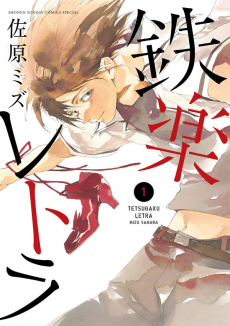 MANGA DramaTetsugaku Letra
MANGA DramaTetsugaku Letra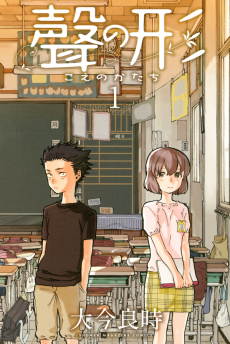 MANGA DramaKoe no Katachi
MANGA DramaKoe no Katachi MANGA ComedyHachimitsu to Clover
MANGA ComedyHachimitsu to Clover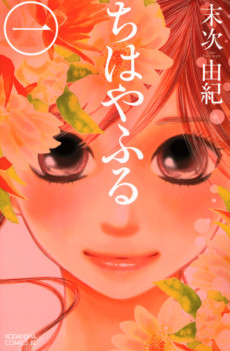 MANGA DramaChihayafuru
MANGA DramaChihayafuru MANGA DramaOyasumi Punpun
MANGA DramaOyasumi Punpun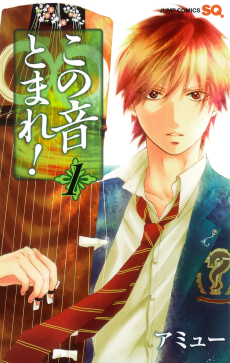 MANGA DramaKono Oto Tomare!
MANGA DramaKono Oto Tomare! MANGA DramaAo no Flag
MANGA DramaAo no Flag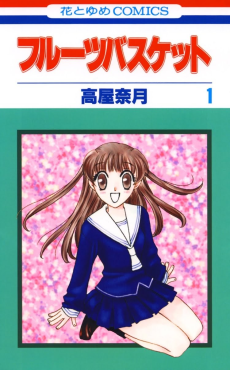 MANGA ComedyFruits Basket
MANGA ComedyFruits Basket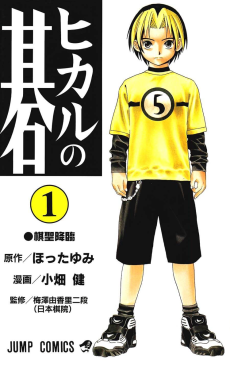 MANGA ComedyHikaru no Go
MANGA ComedyHikaru no Go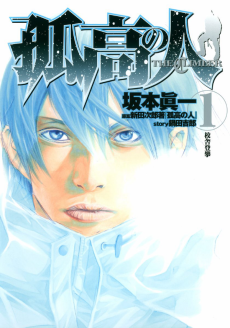 MANGA AdventureKokou no Hito
MANGA AdventureKokou no Hito
SCORE
- (4.35/5)
TRAILER
MORE INFO
Trending Level 3
Favorited by 2,454 Users

